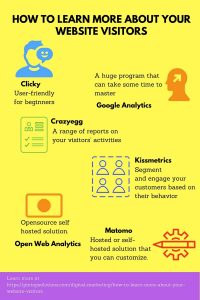Compared to other industries blindsided by the pandemic, the software development industry was in a position of relative strength. Work-from-home capabilities, experience with remote collaboration tools, and an understanding of automation helped organizations in this space survive and even thrive during lockdowns.
However, the industry still underwent some massive changes. As the business world transitions to the next normal, it’s a good idea to learn from the innovations embraced during the pandemic. Here are the top 19 COVID-19 lessons from the software development industry:
1. Remote collaboration is possible.
Cross-disciplinary teams are critical for responsible, user-centric software development. At the outset of the pandemic, Gartner pointed out an increased need for collaborative technologies to help bring people together across any distance. While these tools might not precisely replicate in-person sessions, they offer their own advantages. Companies in other industries need to invest in digital tools that promote collaboration.
2. Communication did not have to take a hit.
Slack and email are communication tools rather than collaboration tools. After the initial lockdowns, industry leaders in software development discovered that communication between team members suffered very little. According to Statista, only 26% of companies expanded access to communication technologies during the pandemic.
3. Transparency can build trust.
Transparent communication is powerful, and communicators who are perceived to have good intentions are more likely to be trusted. Being honest with clients about struggles helps companies build stronger relationships. If developer velocity has decreased, then being forthright with clients about timelines is essential.
4. Leaders should prepare for the unexpected.
Designing products and services for future needs requires the vision to perceive what the world might be like in the future. “Black swan” events notwithstanding, leaders in all industries should be prepared for curveballs. Although it’s impossible to account for everything, leaders should have multiple levels of contingency in every plan.
5. Agility helps companies succeed.
The “Agile Manifesto” popularized flexibility and iterative improvement in software development back in 2001. Today, business agility offers a reduced time-to-market, increased innovation, and superior customer satisfaction. Any organization can benefit from adopting an agile mindset.
6. IT departments deserve respect.
In a survey from 1Password, 89% of respondents said they had no criticism of their internal IT teams. Remember that the IT department is there to drive value and enable work across departments. Being part of the 11% that criticize their contributions is counterproductive to company goals.
7. It’s important to leave video on (as much as possible).
A large part of communication is nonverbal. It might be tempting to turn off video for meetings, but seeing other attendees can help forge deeper virtual connections. Vanessa Wasch recommends being “corporate clean” by presenting yourself “in a way that will make you feel good, and also in a way that is not distracting to others.”
8. Some struggles will never change.
According to the research paper, “A Deep Dive on the Impact of COVID-19 in Software Development,” most developers reported that software bugs remained steady during the pandemic. Even though the coronavirus brought about unprecedented change, there will always be consistent obstacles that companies must navigate.
9. Companies need to trust their developers.
There were plenty of concerns that code quality would diminish with developers working from home. Thomas Supercinski, head of engineering at Frogslayer, believes the opposite is true. “We’ve seen a rise in code quality across the board — measured by escaped defect rates and change failure percentage,” he says. “I attribute this to a large degree to the increased ability for developers to control their working environment, enabling them to block out larger stretches of time to focus and reflect.”
10. Now is the time to pursue necessary initiatives.
Software development and IT-based initiatives were crucial before the pandemic, but they’ve become even more important as organizations struggle to keep up with digital transformations. Fortunately, about 52% of respondents in an Accelerated Strategies Group survey said they had approached these initiatives with renewed focus.
11. Productivity has increased.
The same ASG survey found that productivity has increased in the software development space. This is true of other industries: One company’s research data revealed a 47% boost in productivity after the shift to remote work.
12. Empathy is a valuable tool.
Software developers design products based on clients’ needs. Without empathy, the industry wouldn’t be able to deliver as successfully. During times of collective suffering and hardship, leaders should use empathy to bring people together.
13. Working from home is not for everyone.
For parents, in particular, working from home during the pandemic was a source of increased stress. Sharing a working environment with children or spouses can be difficult, and some employees simply find an office environment more comfortable and productive.
14. Leaders should look inside for emerging tech talent.
Microsoft expects that the next five years will see 150 million tech or tech-adjacent jobs emerge. Filling these positions will not be easy. Instead of competing for top talent, leaders must explore opportunities to upskill current employees while promoting tech talent to senior positions.
15. Developers should leverage open-source and crowdsourced approaches.
The technology landscape offers incredible resources; companies that fail to take advantage of open-source development are missing out. Research indicates that 99% of software contains open-source components. Let developers focus on unique company requirements instead of forcing them to recreate the wheel for each new project.
16. The supply chain affects every industry.
Inconsistencies in raw material availability are affecting the electronics manufacturing value chain. These supply chain disruptions could strain board and systems manufacturers in the short term, and go-to-market strategies might need to be adjusted. According to a survey from Dimensional Research, 53% of new product launches have been affected by the pandemic.
17. Automation is the future.
Tools like Automation Anywhere, UiPath, Nintex, Zapier, and even If This Then That are empowering nontechnical “citizen developers” to automate aspects of their work. One of the most compelling promises of the Fourth Industrial Revolution is the idea that humans can finally focus on knowledge work and creativity instead of mechanical processes that machines can handle.
18. Companies must become more responsible with carbon accounting.
Pandemic-prompted shutdowns offered a reprieve from harmful emissions. This led consumers, investors, and companies around the world to recognize the importance of sustainable business practices and products. Successful software products are designed to be sustainable, so companies in other industries need to follow suit.
19. Quantum computing has vast potential.
Quantum computing could exponentially increase the speed of many processes. For instance, research from McKinsey suggests that quantum computing could accelerate drug development by enabling a faster and more accurate predictor of molecular properties.
Some of these lessons were well-known within the software development industry, but others were assumed to be true and had never been challenged until the global pandemic. For example, everyone claims to endeavor toward transparent communication, but the trustworthiness that comes with transparency was not fully tested before COVID-19. Now that the crisis is entering the rearview mirror, it will be important for companies to reflect on what was learned, how they can improve, and which elements from quarantine are better than what we were doing before.
Business & Finance Articles on Business 2 Community
(67)







